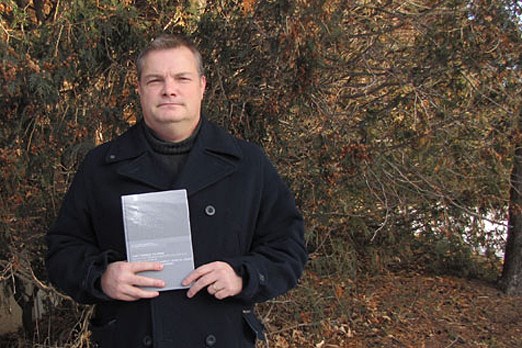Having completed his first ever published textbook, Harvey Lemelin says he hopes his predictions about the world’s ecosystems are completely wrong.
A professor with Lakehead University’s school of outdoor recreation, parks and tourism, Lemelin co-edited the academic textbook Last Chance Tourism: Adapting Tourism Opportunities in a Changing World.
The book arrived at the Lakehead University Bookstore as well as online on Nov. 28.
Lemelin said a last chance tourist is someone who is attracted by the perception of vanishing or disappearing destinations, such as the Great Barrier Reef or endangered species like tigers or polar bears.
But since people are traveling all over the world to see these places, they in fact may cause more harm than good, he said.
“We’re kind of hoping we’re wrong about these kinds of predictions,” Lemelin said.
“It would be great to read this book in 10 to 20 years and go ‘wow, these systems were a lot more resilient than what we gave them credit for.’ We’re kind of hoping that our kids will read it, critique it in university and say ‘our parents were really off on this one.’ That would be great.”
The research portion of the book started four years ago and Lemelin contributed information about the impact climate change has had on polar bears. With so much public attention, it isn’t certain what tourists are doing to the environment, he said.
“That’s the million dollar question. It’s certainly increasing their carbon footprint, which is one of the ironies of this whole type of tourism, because people are going to these places and it’s increasing travel and putting more pressure on these sites.
“For some people it is completely unethical to go to and add further stress, but people are still going to go whether we think it’s ethical or not. What we need to do is provide ethical approaches and educate people.”
Education could be simply telling people not touch the delicate coral when visiting any coral reefs because the oils from peoples’ skin will kill it, he said.
While the book’s audience will primarily be academics, he said he hoped its messages would transcend that demographic.
“It’s written in an academic manner so it’s not going to be something my family is going to run out and buy,” he said.
“That’s the whole challenge though. What we have done is partnered up with tourism operators because they were the first to notice this phenomenon so we partnered with them and talked to them and expanded beyond academia.”
Lemelin added that any money made from the book will go towards not-for-profit organizations working on these issues.
